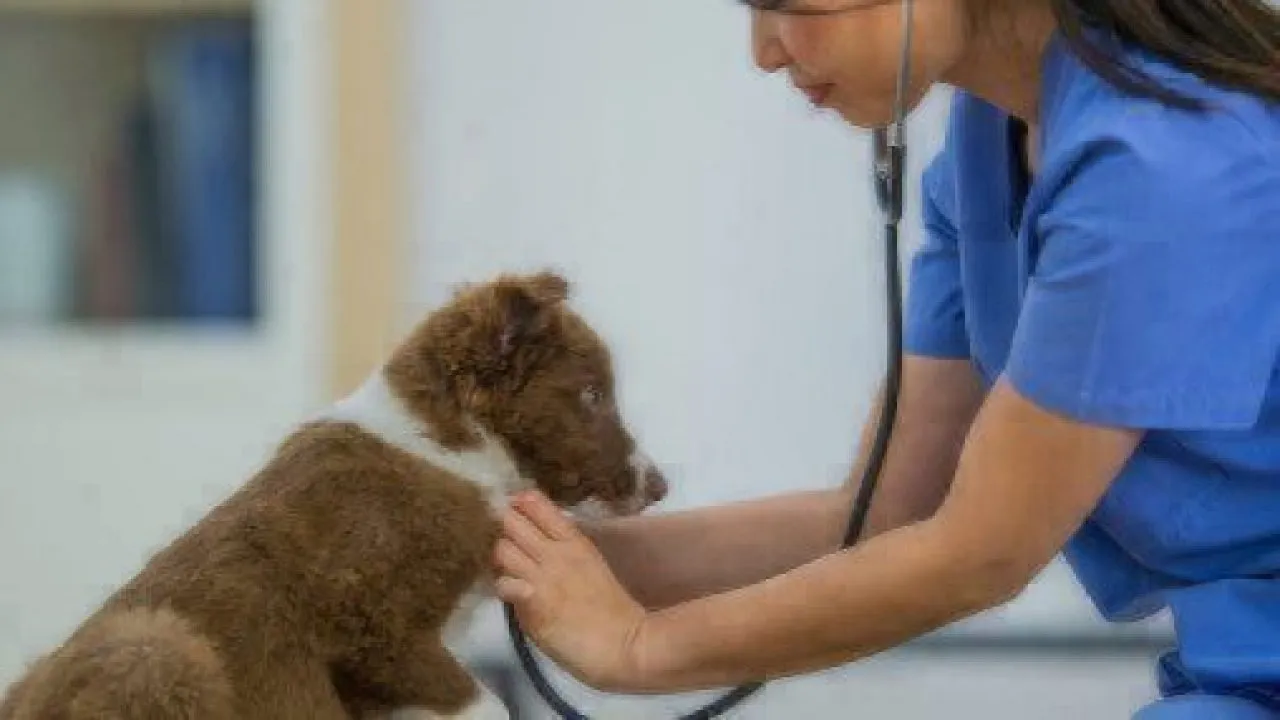Key Takeaways
- Many puppies develop kennel cough because of their underdeveloped immune systems.
- Kennel cough is caused by bacteria and viruses.
- It is highly contagious and involves dry hacking and nasal discharge.
- A vet can diagnose kennel cough with a physical exam, bloodwork, and x-rays.
- Kennel cough can be treated with medication and extra rest.
Table of Contents
Puppies are susceptible to many illnesses because of their underdeveloped immune systems. The symptoms of some sicknesses may be more severe in puppies because of their inability to fight them off. Kennel cough is one of those illnesses and can progress to other, more serious illnesses and even death in puppies.
Causes of Kennel Cough
Kennel cough, or infectious canine tracheobronchitis, is a condition caused by one or more viruses. The bacteria Bordatella bronchiseptica is another cause of kennel cough. This respiratory disease is highly contagious, and most dogs that contract the illness have recently been in crowded quarters like a birthing den or a kennel. Puppies are especially prone to acquiring kennel cough due to their weakened immune systems.
Dog Kennel Cough Symptoms
As the name implies, the main indicator of infection is a dry, hacking or “goose honk” cough. Nasal discharge and retching are also symptoms. More severely infected dogs can have fever, lack of appetite, lethargy, and life-threatening pneumonia.
Diagnosis
To diagnose kennel cough, your vet will require a detailed history of your pet’s health – any recent travels and when symptoms began – and a physical exam. Often, placing light pressure on the trachea of a dog with kennel cough will elicit the characteristic cough. For more severe cases, your vet might perform bloodwork and x-rays.
Treatment for Kennel Cough
In mild cases, your dog can fight kennel cough on its own, like humans with the common cold. For puppies, however, an anti-inflammatory drug will be given to reduce pain from coughing. Severe viral infections can cause secondary bacterial infections because the immune system is too weak to fight off bacterial pathogens. Thus, more severe cases of kennel cough require antibiotics to fight off the infection, and possible hospitalization.
While your dog has kennel cough, it’s best to remove any constrictions from around the throat – collars, bandanas, etc. Use a body harness instead of a leash to walk your dog.
To avoid physical exertion, which could worsen your dog’s kennel cough, keep your dog rested for 10 to 14 days. If you have other dogs, keep them separated from your dog with kennel cough during treatment.
How to Prevent Kennel Cough
Until a dog is around 1 year old, it’s best not to board them in a kennel. If you have to go on vacation, place the puppy with a friend or family member. However, it’s highly recommended that you do not leave your puppy within the first year – this is a formative time when pet parents bond with their pets; leaving can stress the bond, or even break it. There is a vaccine for the kennel cough virus – talk to your veterinarian.
Kennel cough is a fairly common condition among puppies, but can progress to a life-threatening illness if left untreated. Avoid boarding your puppy until they’re at least 1 year old. If your puppy develops a cough, seek veterinary treatment immediately. To prevent kennel cough, ask your vet about the kennel cough vaccine.
The content is not intended to be a substitute for professional veterinarian advice, diagnosis, or treatment. Always seek the advice of your veterinarian or other qualified health provider with any questions you may have regarding a medical diagnosis, condition, or treatment options.









